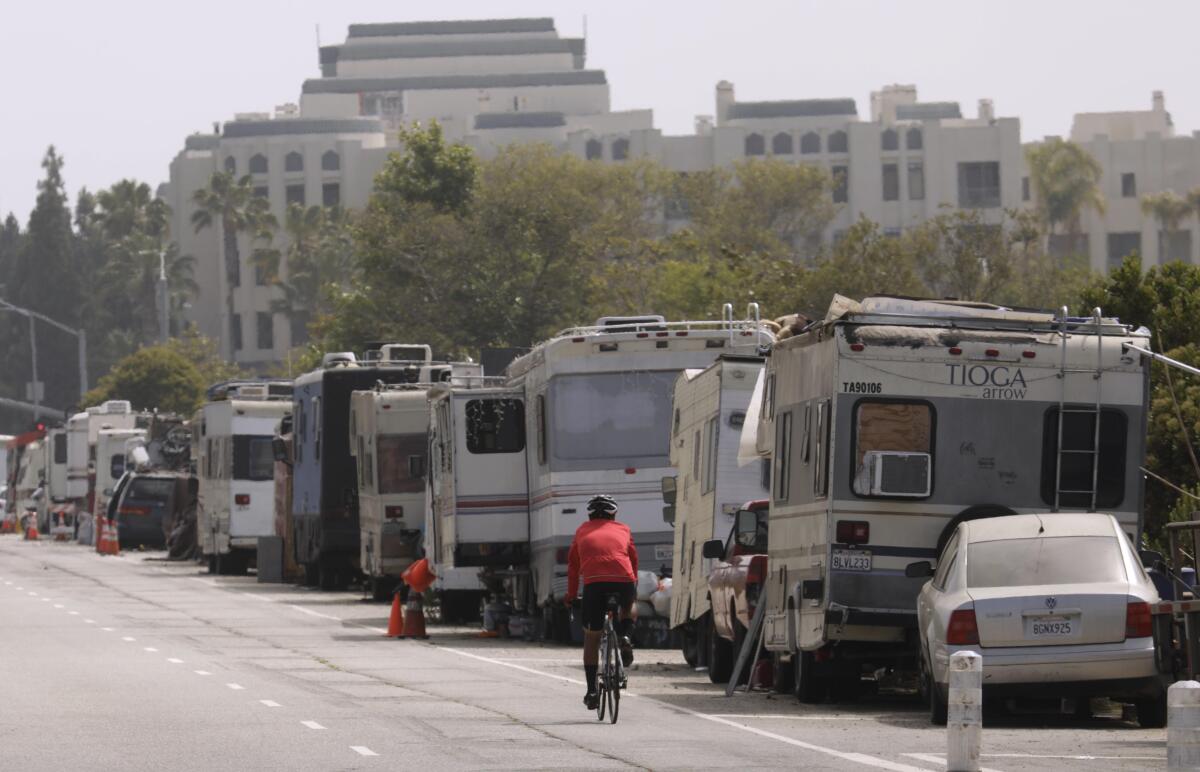Letters to the Editor: People are unhoused because housing is unaffordable, not because of a court ruling

- Share via
To the editor: Your article, “The little-understood reason why clearing homeless encampments became harder in California than most other states,” is written as if the human suffering on the streets of Los Angeles could be radically transformed if not for a ruling by the U.S. 9th Circuit Court of Appeals.
No ruling by the courts, not even one by the U.S. Supreme Court, will change the fact that Los Angeles’ housing costs are out of reach for most people. Many of us are one missed paycheck, illness or mistake away from ending up in a tent on the sidewalk, and an anti-camping ordinance won’t stop people from doing what they must to survive.
We are all frustrated by the street conditions, but instead of brutal sweeps that shuffle people like trash from one corner to the next, our leaders should focus on affordable housing and protecting tenants from eviction.
Rae Huang, Los Angeles
The writer is senior organizer with the group Housing Now.
..
To the editor: Those of us who grew up in the 1950s never saw our cities’ sidewalks or parks overrun with tents pitched by the unhoused.
Yes, we had seen homeless encampments elsewhere. They typically were located on the outskirts of towns, along railroad tracks and on stream beds.
Back then, vagrancy laws barred people from camping within city limits. Furthermore, the number of unhoused people was kept low by two factors: Jobs were abundant, and state mental hospitals housed thousands of people who would have otherwise lived on the street.
Within a few decades momentous changes steadily accelerated homelessness. Courts struck down vagrancy laws. Psychiatric hospitals were emptied. Automation, computerization and job outsourcing to foreign countries diminished employment opportunities.
Evidently the foreseeable downsides of those changes escaped our leaders’ notice — that, or there was no political upside to addressing these downsides. It’s time to pay the homelessness piper.
Betty Turner, Sherman Oaks
..
To the editor: Unfortunately, homeless encampments eventually become public health hazards. How do we balance the rights of unhoused individuals against the rights of the communities affected by encampments?
Despite all the good intentions and funds that have been directed toward alleviating the problem, nothing seems to have long-term impact.
There are deeper systemic issues at play here that have to do with the income inequalities that exist in our society and need to be solved at the federal level. Until that happens (and I’m not holding my breath), local efforts will continue to have limited effect.
John Beckman, Chino Hills
..
To the editor: Cities can’t remove encampments unless there is a place for unhoused residents to go.
A few months ago, The Times reported on a study that found there were more than 100 vacant, government-owned parcels in L.A. that could be used for housing. These properties could provide toilets, water, electricity and even a physical address where one could get mail.
Then we’d be in compliance with court decisions.
Jerry Bluestein, Mar Vista




